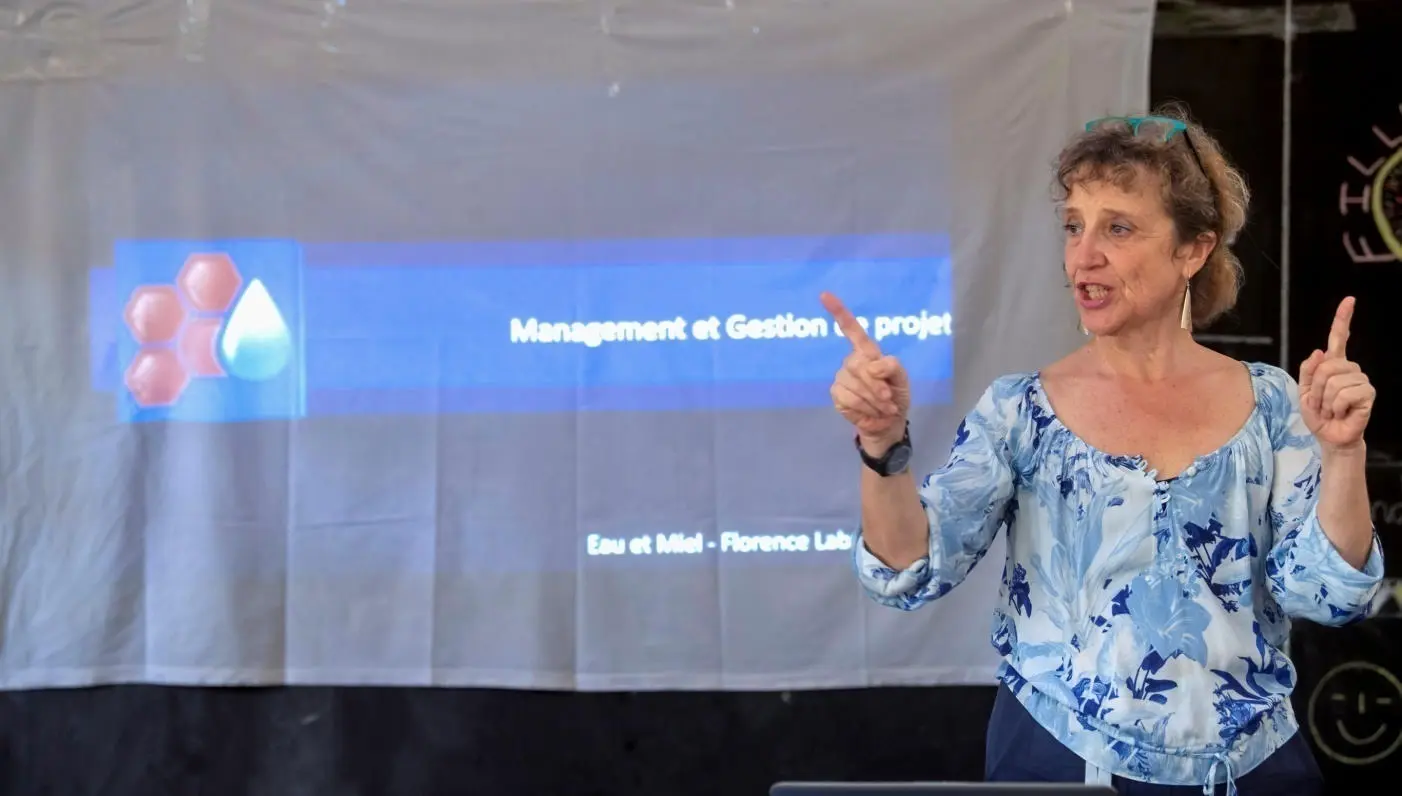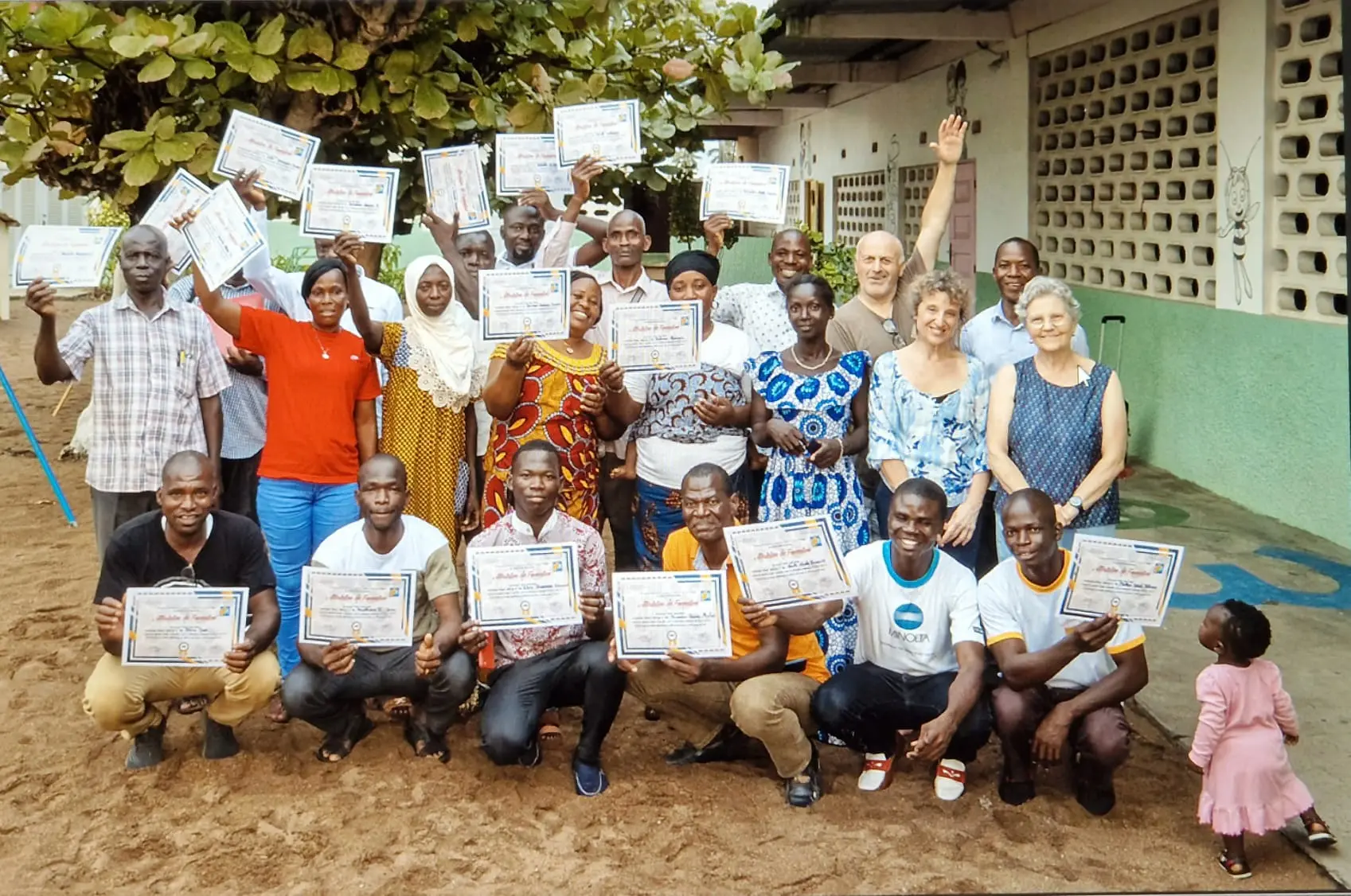DB&L services professionalism and passion as a project manager volunteer in a Swiss NGO called ‘Acqua e Miele’ operating in the Ivory Coast.
Being a senior Project Manager can give opportunities outside the standard business world.
Last year, I have been proposed by twenty-two years established NGO to launch and control a very interesting and challenging project in Ivory Coast.
The perimeter of action is limited to the 9 locations across the country of beekeepers’ communities for a total of almost 900 members.
The main program called IVOIRE is composed of 5 projects:
The program aims to improve the living conditions of the whole beekeeping community that has been created and grown over the last 22 years thanks to the NGO. Acqua e Miele (www.acquaemiele.ch). Obviously, all the communities of people connected to ‘Acqua e Miele’ get benefit from the progress of the NGO too. It bears particularly in mind the central role played by women and the evolution that can be reached in their relations with men.
Specific objectives of the 5 projects belonging to the IVOIRE program are:
- HONEY. The production of honey must meet hygienic-sanitary norms according to the ministerial standards with the aim to improve Honey production and distribution.
- ADMINISTRATION. The administration of ‘Acqua e Miele’ needs to be consolidated from an institutional and financial point of view in order to be able to operate independently from the Swiss organization.
- WASH for hygiene education, drinkable water and campaign against EARLY PREGNANCIES. The goal of the project is to build and maintain 10 latrines per location (separate the women from the men ones), as well as give the teams the opportunity to manage drinkable water. On top of that, we will organize campaigns against early pregnancies in order to give women the possibility to grow and participate to the economy of their villages & families.
- REFORESTATION. In all the areas of competence, a program to fight against Feux de brousse (“forest fires”) is launched, and 27 hectares of uncultivated land are reforested. This is obviously related to the activities of beekeepers as the trees are chosen to increase the pollination potential of bees and to fight against desertification.
- BIO-CHARBON. The experimental project to produce charcoal is active in one of our locations. This will use vegetable waste present in the area instead of trees wood reducing the cut of the trees.

As Senior project manager, I have been given the assignment to help organize and implement as well as control the WASH project (project 3).
In more detail, the objective of the project is to:
- Give basic hygiene education in community life, by building and maintaining 10 latrines in the 9 different locations/villages.
- Educate the communities on how to get and keep drinkable water. The purification of the water will be possible thanks to the provision of a chlorinator. A device that will allow sodium hypochlorite to be obtained from a saltwater solution.
- Grow project management and entrepreneurial leadership skills. Training, to groups and on a one-to-one basis, on how to manage a project and guide a team will be handled to each regional leadership team.
- Organize campaigns against early pregnancies. The goal is to give the right position to the figure of the woman currently on the margins of the decisions of village life although she is a systematic pillar in the family and the village.
The Wash project is grafted on to ‘Acqua e Miele’s committee desire to contribute in a tangible way to improving the hygiene conditions of the people involved in our ONG and of those people who gravitate around them. The figure of the woman is massively reinforced by the presence of a national coordinator and the 9 ‘Clubs Santé’ (one per location) constituted exclusively by local women.
Team organization:
The project organization is composed of:
- The NGO committee needs to understand and help the project development and sustainability. The NGO committee is composed of Swiss and African members. My role in this committee is to help leading, audit/control the project’s phases.
- The team of self-help groups called ‘les clubs Santé’ composed with women chosen in different location to raise awareness among the population on the various project goals.The African project team is composed of a national Project director who report 9 regional project managers who will coordinate with different outsiders (masons, doctors, nurses…) the activities at each location. Having an active and responsible role within the communities will create self-esteem in the women that can also be transmitted to the young generation: it is clear that it will take time because they will probably be, at least initially, hindered by the husbands and men of the village not accustomed to women having responsibilities within the community, but, if the results are encouraging, with fewer pregnancies, fewer intestinal problems in children, more cleanliness, men will also understand the importance of this role and will be able to refer to them as well and accept them positively.
- Outsiders across the globe that will be the actors in various activities like: building latrines, training on the use of PC, organizing events in schools.
Stakeholders Plan:
Here is one of the main challenges: stakeholders are from the 9 locations in Ivory Coast and the NGO association is composed with local members and Swiss ones:
- – The 9 Ivory Coast locations can be at 2 days distance from each other.
- – the NGO committee is composed also of stakeholders who are living in Ticino (Switzerland).
- – On top of that the main funds have been granted by the FOSIT association who as a result created a third set of stakeholders.

Communication Plan:
We have carefully mapped the communication plan and recurrences across the countries:
- I had to make sure that Financial status can be handled on a bi-monthly basis by using social media tools, mainly WhatsApp or Zoom, considering some gaps on the network coverage in Ivory Coast.
- In order to be able to follow the project cross the continents, we put in place a bi-monthly Project status call with the local coordinators/project managers with whom we validated a communication format to use. These calls are like standup calls but not daily.
- I also had to map a detailed audit/control parameters plan to make sure that FOSIT gets the requested data to be sent at the right time and in the requested format.
- No doubt that a lot of local calls and meetings within the Swiss committee or the African organization are one too.
High Level Plan:
The detailed financial and milestones plan have been built and validated across the continents and stakeholders.
We had to respect the fact that not all locations started at the same stage. Each of them has a different level of team mobilization, maturity, building status and organization point of view as well as of tools availability (phones, laptops, coverage). That obliged us to pilot the project in the most advanced location first. Once the project will be delivered, the other locations will be able to have a solid model to refer to.
The next group of steps is to organize the first big event that will gather the people of a pilot location where the project Wash will be presented by different experts on hygiene (local authorities), drinkable water (engineers) and prevention on early pregnancies (doctor). This event will happen in February 2023.
Lessons learned:
- The training I did on Project management has been successful and did trigger a lot of groups and individual follow-up based on the different skills of the participants. Each location was represented by more participants in order to cover the topics from project scoping, planning, budgeting and managing the various phases in the 9 different locations. This has been an excellent start.
- Tools are crucial for a so geo-extended project. We could have done better in covering the technical needs in advance, especially in making sure that each woman of the team has a phone.
- Geographically-far-creating some difficulties in getting transparency in the decision and financial follow-up from and to Africa. This aspect has been limited by being able to get home banking accesses across the continents.
No doubt that without global digital transformation impacts, this challenging project would have been almost impossible.
Conclusion:
For DB&L services , this is a fantastic professional and cultural experience. We are confident the team will make it becasue of its positive energy and committement. We will be happy to give additional information and progress on demand.

